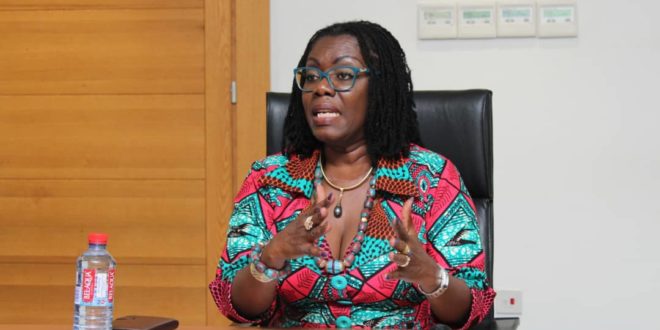Ghana.gov generates over GH¢200 billion for Gov’t
“We knew we had local capacity to design and develop a robust system to address our peculiar challenges and so we empowered three indigenous technology firms to design a totally new portal”
- Advertisement -
The Ghana.gov, a digital platform for revenue collection for institutions in the public sector has generated GH¢200billion for the government.
This was disclosed by the Minister for Communications and Digitalization, Ursula Owusu-Ekuful, at a news conference organised by the Ministry of Information in Accra yesterday.
- Advertisement -
“Currently, Ghana.gov has facilitated the collection of an impressive sum of GHS 210 Billion. This substantial amount underscores the platform’s pivotal role in streamlining financial transactions, enhancing transparency and bolstering the nation’s fiscal integrity”, she disclosed.
- Advertisement -
According to the Minister, the Innovative Digital Services and Payments Platform, GHANA.GOV, stands as a testament to the digitalization agenda of the Nana Addo/Bawumia government in modernising governance and facilitating seamless access to government services.
She continued that: “Through its user-friendly interface and comprehensive array of online
functionalities, Ghana.gov has become a cornerstone of Ghana’s digital transformation journey”.
Mrs Ursula Owusu indicated that 1,507 institutions have been on board in its three years of operation.
This milestone, she argued, symbolised the tangible impact of digital innovation on public service delivery, economic efficiency, and citizen empowerment.
By harnessing the power of technology to centralise and optimise revenue collection processes, Mrs Ursula Owusu mentioned that Ghana.gov has not only expedited financial transactions, but also minimised bureaucratic red tape and mitigated the risk of revenue leakages, effectively addressing the issue of public sector corruption.
“The success of Ghana.gov also underscores the growing trust and confidence of citizens and businesses in digital government platforms.
It reflects a paradigm shift towards digital-first governance, where convenience, accessibility and accountability are prioritised in service delivery”, she added.
- Advertisement -
She emphasised that this achievement serves as a compelling motivation to enhance and expand the capabilities of Ghana.gov.
Additionally, she’s optimistic that as the platform continues to evolve, “it holds the potential to catalyse even greater socio-economic development, empower citizens and solidify Ghana’s position as a trailblazer in the digital revolution sweeping the African continent”.
However, she debunked the myth that the e-Services Platform and Ghana.gov are the same.
According to her, the e-Services Platform was deployed in 2012 under the e-Ghana project as a pilot to produce an e-government Portal to provide relevant government services to citizens and businesses.
She underscored that the e-Services faced a lot of challenges. As a result, the Akufo-Addo/ Bawumia government took a totally different approach to government’s online service delivery by adopting a sustainable and cost effective approach.
“We knew we had local capacity to design and develop a robust system to address our peculiar challenges and so we empowered three indigenous technology firms to design a totally new portal”, she explained.
She further explained that government discontinued the Ghana E-Services Payment Platform (GEPP) and entered into a partnership with a consortium of three local technology firms (Hubtel, expressPay and IT Consortium) to design, develop, deploy and manage a one-stop-shop online services platform with an integrated payment gateway for the Government of Ghana, known as Ghana.gov.
She stated that this platform serves as a shared central point for all government online revenue collection, enabling citizens and businesses to discover, consume and pay for government services online seamlessly.
Madam Owusu-Ekuful also outlined the revolutionary Nationwide E-Government Network, aimed at broadening broadband connectivity and promoting digital literacy across Ghana.
This initiative, she stated, is poised to transform governance, enhance service delivery, and empower citizens and businesses nationwide.
- Advertisement -



